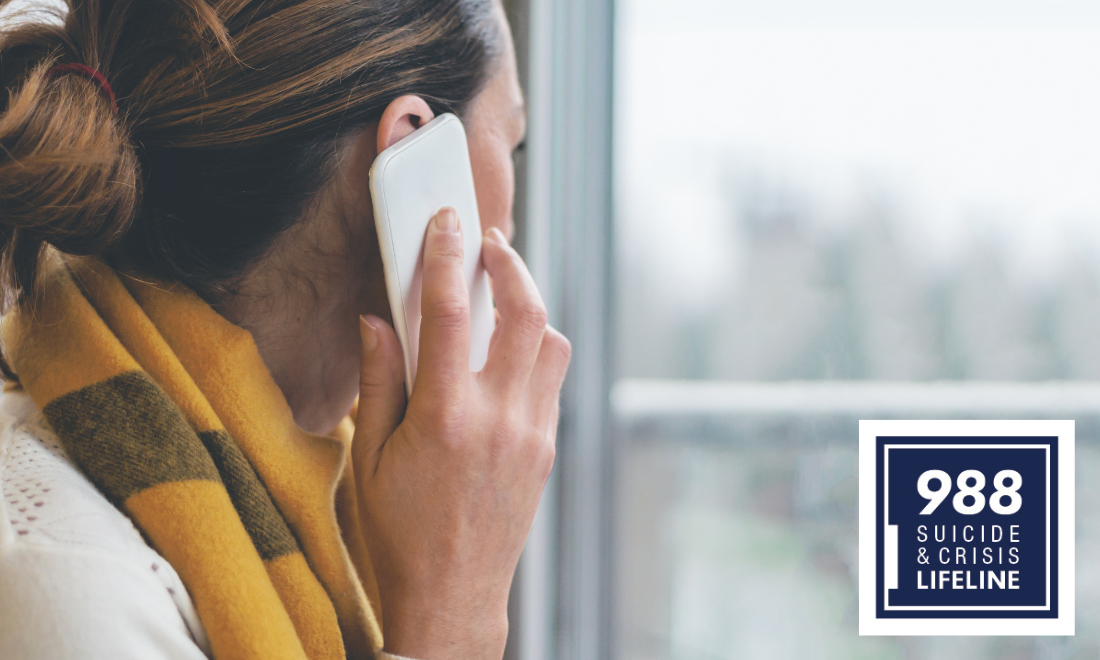Call 988: Suicide and Crisis Lifeline
Several nonprofits in the St. Louis region and other organizations across the country have recently adopted the new 988 national three-digit phone number for suicide, substance use, and other mental health crises.
The service is available 24/7 and is free and confidential. 988 replaces 1-800-273-8255, though the 8255 number will continue to function indefinitely.
Substance Abuse and Mental Health Services Administration describes the primary goal of the lifeline as: “to provide support for people in suicidal crisis or mental health-related distress in the moments they most need it and in a matter which is person-centered. Currently, fewer than 2% of Lifeline calls require connection to emergency services like 911.”
Calls or texts to 988 will be rerouted to Suicide & Crisis Lifeline centers in each state, where specialists will offer rapid access to behavioral health support through trained specialists.
The specialist will engage with the caller to understand their situation and needs, with intervention to follow. Intervention may include assessment, stabilization, referral, and follow-up for individuals at high risk for suicide and/or poor mental health outcomes. A mobile crisis response team may also be called upon to respond to the person in the community.
The expensive network of over 200 local and state funded crisis centers are accredited, provide training for counselors, and disseminate best practices. Crisis centers can also act as a resource for mental health professionals.
Crisis centers in and around St. Louis are:
- Behavioral Health Response (St. Louis, MO)
- Provident, Inc. (St. Louis, MO)
- DeafLEAD (Columbia, MO)
- Compass Health Network (Clinton, MO)
- Memorial Behavioral Health (Springfield, IL)
- Kansas Suicide Prevention HQ (Lawrence, KS)
- Community Network for Behavioral Healthcare (CommCare) Inc. (Kansas City, MO)
The Suicide and Crisis Lifeline is a national network, but the funds that sustain the network’s crisis centers come from state and local contributors. It us up to each state to ensure crisis services are adequately funded and available to those in need. Missouri’s 988 Task Force is developing a 988 plan and exploring long-term funding options. Click here to read more frequently asked questions about 988, including questions about federal/state roles and funding.
Crisis centers need your support. Find the center nearest to you and consider volunteering, making a donation, or organizing a fundraiser. Consider advocating on social media for yourself or someone you know who has been helped by a crisis center.
“Over the past decade; there’s been increased willingness to recognize mental health as an essential part of one’s well-being,” said Andrea Jackson-Jennings, Managing Director, Regional Response Team. “I’m thrilled those resources are available to address one’s well-being.” The Regional Response Team recently held a mental health awareness training course in partnership with Behavioral Health Network.
If you or someone you know is experiencing a mental health crisis, know you are not alone. Call 988 now to speak to a caring, non-judgemental mental health expert.
Sources:
- 988 Suicide & Crisis Lifeline
- Missouri Department of Mental Health
- Substance Abuse and Mental Health Services Administration
Click here to view a full map of crisis centers.


